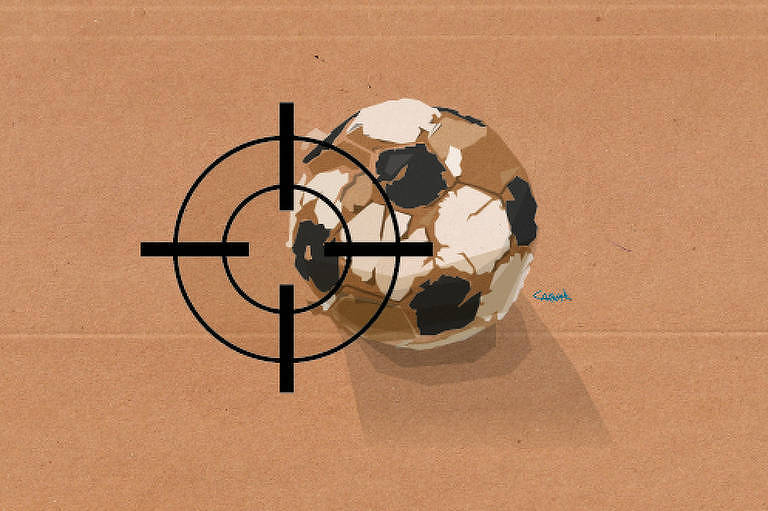The American newspaper The New York Times announced last week that it will end its sports section. To the newsroom, the executive editor stated that the change is "an evolution in the way we cover sports". Evolution is understood to publish material produced externally on its domains, by The Athletic, a specialized website that the Times bought at the beginning of last year for US$ 550 million. It seemed obvious that this would happen sooner or later, given the duplicity in various coverages. Still, it's a revolution in the industry.
The Times itself recognized the drastic nature of the change in an article it published on Monday (10) about the end of its editorship, "a pillar of American sports journalism". A section, as they said at the time of printing, with excellent journalists, Pulitzer prizes on the shelves, and a column, "Sports of The Times", to cause envy to anyone who has ever risked writing professionally about sports.
Folha was quick to translate and publish the text about the case. In addition to media coverage, where it often navigates alone, a certain confirmation bias: the newspaper has long reduced its sports coverage to a minimum, to the despair of many readers.
Very different situations. While Folha often has more news in the section's opinion columns than in the actual articles, the Times will feature content produced by 400 professionals from The Athletic. Those who subscribe to the site have the first mission to customize it with some of the 200 teams that are monitored. Diversity of ideas, so demanded in other corners of the internet, easily succumbs to cliques. Running the risk of bumping into random subjects and eventually being surprised should be an option.
The Times' decision is not just about an economic or labor issue (the newspaper's professionals are unionized, the ones on the website are not, and the strike in Hollywood shows what that means in the US). The acquisition of The Athletic is part of a strategy to increase the number of subscriptions offering entertainment and services, content far from hard news. The world press follows suit, and that is why readers here in Brazil are currently being bombarded with culinary recipes, hobbies, and product tests.
The movement changes an important paradigm. For the newspaper that exposed the use of steroids in baseball, shaking the structures of the most traditional professional league in the USA, sport is no longer in the news corner, at least not administratively. Republishing the site's excellent material is an easy task. The complicated part is losing the editorial decision on news content to another newsroom.
If the consequence in the case of the Times still sounds theoretical, the precariousness of sports coverage in Folha makes it evident. The recent episode of the death of a supporter of Palmeiras (a football team from São Paulo), the victim of shrapnel from a bottle thrown during a fight, is an eloquent example of how much the newspaper has abdicated with the dismantling of its structure.
In an apparent editorial choice, the news went to Cotidiano. Violence, after all, is something for police pages. The expertise, however, did not materialize. The Police chief interviewed informed that the young woman belonged to one group of supporters and her boyfriend to another in an effort to explain her presence in the middle of a commotion of rival supporters. The phrase was uncritically reproduced not only in Folha. Days later, this and other conclusions were contested by the Public Prosecution Service and criticized by the judge who ordered the release of a previously suspected Flamengo supporter.
Trailing the official version was also the article on the girl's burial. According to the newspaper's report, the ceremony was marked by emotion and the presence of the organization of supporters to which she was affiliated. A video plays fireworks and flares thrown in her honor. No line in the texts ponders that the fans have a long history of violence and convicted members, who have already been banned from stadiums, and who have even turned themselves into a samba school in order to legitimize their existence.
As the columnist PVC wrote, the senseless death of a 23-year-old woman is as shocking as the death of a teenager in the middle of Pacaembu in 1995. Between the two events, there were many more victims and a lack of political will to sort out the issue. "The government has to put an end to violence. There is no point in simulating competence and arresting the bottle", he concluded.
To naturalize what happened with a bureaucratic cover is to naturalize barbarism. Journalism is investigating, trying to understand the differences between the police chief and the prosecutor, the errors and leniency of the authorities, the growing female presence in organized groups of supporters, and even the reason why street vendors prefer to sell beer in bottles.
Someone will say that none of this has anything to do with sport. It is a mistake, the same one that newspapers make when they end their editorial teams.
Jose Henrique Mariante
An engineer and journalist, he was a reporter, correspondent, editor, and secretary at Folha, where he has worked since 1991. He is the ombudsman.
Translated by Cassy Dias
